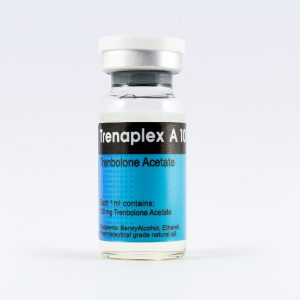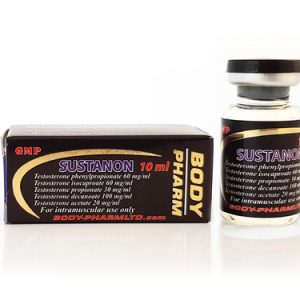Total: $85.00
The role of proteins in the diet
Proteins (proteins) are the basis of life. They are of animal and vegetable origin. Animal proteins are found in meat, fish, seafood, poultry, dairy products, eggs. The ratio of amino acids contained in them is closest to the optimum for the human body.
Vegetable proteins are found in legumes, nuts, algae, chocolate, potatoes, and various cereals. The human body needs both animal and plant proteins: they complement each other. The total daily body’s need for protein is about 20% of the diet.
What is protein?
Proteins are a key part of every cell in the human body. They are high-molecular biological compounds and serve as “building material” from which the body’s tissues are built: muscles, skin, and also hair and nails. They make possible all the main manifestations of life: digestion, metabolism, ability to grow, irritability of tissues, reproduction and even the highest form of movement of matter – thinking.
A lack of protein in the child’s diet can lead to a sharp lag in its development, while in adults the body’s resistance to colds and infectious diseases decreases, and the ability to work decreases.
The word “squirrel” comes from the Greek word “proteios”, which means “occupying the first place.” So that gives us a good idea of the importance of protein in the diet!
What are amino acids?
The main chemical elements that make up the protein molecule are carbon, hydrogen, oxygen, nitrogen, and also sulfur, phosphorus, and some other elements. Despite this, protein molecules are complex and infinitely varied, as are the manifestations of life.
However, common in the structure of proteins is that they are composed of amino acids (AA). The composition of the molecules of their proteins 20 names. The proteins that make up the food in the digestive tract under the action of enzymes break down into separate amino acids that go to various tissues of the body, where new proteins are formed from them. It is AK that are valuable elements for our body, and not proteins themselves.
There are two groups of amino acids – “replaceable” and “essential”:
- replaceable AK can be formed in the human body. These include alanine, asparagine, aspartic acid, glycine (glycocol), glutamine, glutamic acid, proline, serine, tyrosine, cysteine;
- irreplaceable AKs cannot be synthesized in the human body and therefore must come from food. These are arginine, valine, histidine, lysine, leucine, isoleucine, threonine, tryptophan, methionine, phenylalanine. If proteins contain the entire set of essential AAs, then they are called biologically complete.
The more of these amino acids are present in food, the more complete it is and the better for building our body’s proteins. Most vegetable proteins lack one or two essential AAs. For example, wheat protein contains only half of the required lysine, while in the potato or pea protein, about one third of methionine and cysteine are missing. It should also be borne in mind that vegetable proteins are worse absorbed than animal proteins. Thus, animal proteins are absorbed by 95-96%, and vegetable proteins – by 80% and even 70% in legumes and potatoes.
Passion for vegetarianism, that is, long-term consumption of plant foods can lead to an imbalance of amino acids, which, naturally, will adversely affect many functions of the body, including mental activity. About this warns the modern science of nutrition.
Amino Acid Functions
In the human body, cell death constantly occurs. To create new cells instead of the old one, all the same building material is required – protein. It builds not only the cytoplasm of cells, but also various hormones, enzymes and other biologically active substances that regulate metabolism.
Amino acids are the building blocks of protein that are rearranged in the human body to create:
Hormones:
Hormones are proteins that are produced by living cells. Hormones circulate in body fluids, such as blood, and cause a certain effect on other cells, which are usually at some distance from the place where the hormone is produced.
For example: Adrenaline is a hormone that is produced by the body during stressand accelerates heart rate and respiration.
Enzymes:
They are complex proteins formed in plant and animal cells, and contribute to the transformation of some substances (substrates) into others (products).
Digestive enzymes , for example, help our body process food into chemicals that can be absorbed into the blood.
Antibodies:
Antibodies are proteins produced by white blood cells in response to a foreign substance called an antigen, such as bacteria and viruses.
Hormones, enzymes and antibodies are just some of the substances that are ultimately formed in the body from protein foods.
Daily protein requirements
The amount of protein needed per day depends on various factors, including gender, age, and level of physical activity. They should be about 20% of the daily nutritional need.
The lack of proteins in the daily diet reduces immunity and contributes to the development of various diseases, including cancer. You can significantly improve immunity if you add 15 g of milk proteins (cheese) to the daily rate of 1 g / kg of weight.
Protein is rarely used for energy. This is the work of carbohydrates and fats.
We hope this review has helped you better understand the importance of protein in the diet.
| Protein content (grams per 100 grams of products | |||
| Animal squirrels | Vegetable proteins | ||
| Beef | 20 | Soybean seeds | 35 |
| Veal | 20 | Wheat germ | 25 |
| Pork | 17 | Cereals | 13 |
| Mutton | 15 | Germinated grains of rye | 13 |
| Boiled ham | 18 | Germinated Wheat Grains | 12 |
| Raw ham | 15 | Germinated barley grains | ten |
| Black Blood Sausage | 24 | Corn grains | 9 |
| Sausage | 25 | Wholemeal Bread | 9 |
| Hen | 20 | Wholemeal Pasta | eight |
| Egg | 6 | Beans | eight |
| A fish | 20 | Lentils | eight |
| Dutch cheese | 35 | Nut | eight |
| Cottage cheese | 9 | White bread | 7 |
| Yogurt | five | Wheat grains | five |
| Milk | 3.5 | White flour pasta | 3 |
| Curd cheese | 9 | Unrefined rice | 7 |
| Shrimp | 25 | Refined rice | 6 |
| Muesli | 9 | ||
| Soy Tofu | 3 | ||
| Soy flour | 45 | ||
| Soy milk” | four | ||
| Soy germ | four | ||




